There is one thing I have come to accept as I spend more days on earth, I have a lot to learn.
I have been with the City of Keizer Public Works Department in the role of Environmental Education and Outreach Coordinator since November 2021. In this role I am digesting federal, state, and local permit language, learning the audiences that must be reached based upon those permits, learning stormwater lingo, conducting community events and fielding water quality questions and diving into the pollutants we sample for as well as emerging pollutants simply reinforced what I knew to be true; I am still learning.
Knowing the audience that is seated in a similar ‘I’m still learning boat’; I wanted to share a few items that are top of mind for education as we step into the new year.
#1 Stormwater and Sewer Are Different
My number one lesson learned through teaching in classrooms and at outdoor school last year is that the terms “stormwater” and “sewer” are often confused. They are different systems and the best way to remember how they operate is: stormwater is water that is outside that flows off impervious (non-porous) surfaces into storm drains directly to local waterways. Waste water (sanitary sewer) is water from inside that flows to the water treatment facility and then to our river.
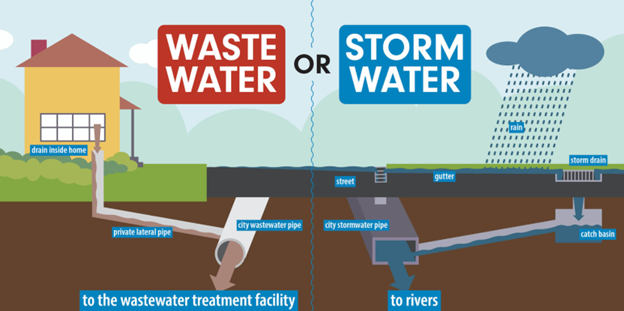
I must also confess that since taking this position in Public Works I know more than I should about what happens when folks put non-flushable items into their toilets or sinks. Waste water is for just that waste water. The repercussions are sewer backups, machinery failure at the treatment plant, and contamination of our groundwater when pipes get clogged.
The waste water system is not intended for fats, oils, grease, toys, paper towels, or left overs or wipes labeled as flushable. Pee, Poo, toilet paper, and water that is it folks. If you love humor like I do, you will enjoy the hilarious no wipes down the pipes lessons from North East Ohio Regional Sewer District on Facebook (@yoursewerdistrict)
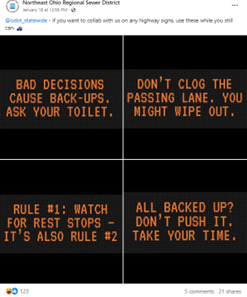
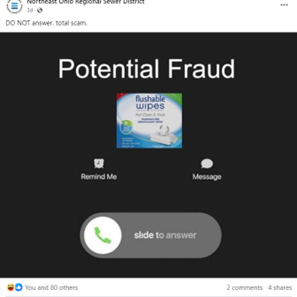
#2 Storm Drains Are Not Garbage Cans
The second lesson I learned from working with our Stormwater Public Works employees is strange things are discarded in storm drains: dolls, sports balls, dog toys, masks, beverage bottles, plastic, so much plastic, motor oil, cement, paint, bark dust, did I say plastic, lots of plastic! Storm drains, like toilets, are not garbage cans.
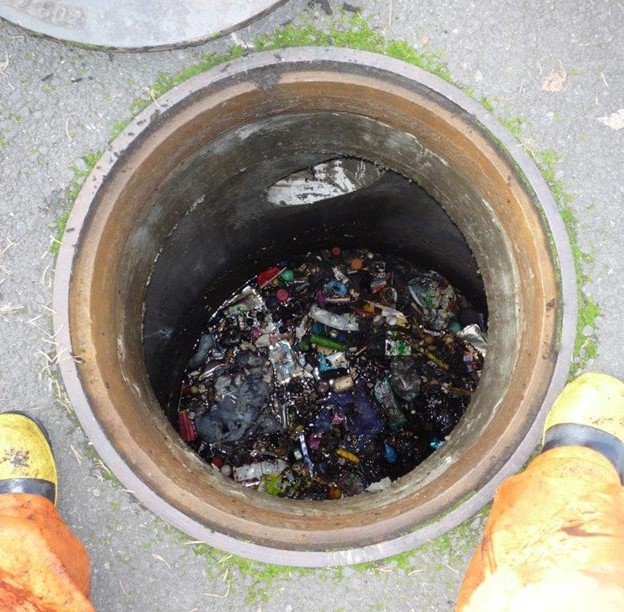
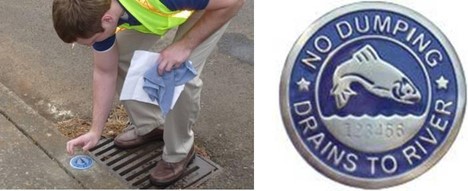
#3 Native Plants Are Super Heroes!
The third lesson I learned is how amazing native plants are! I am awed by the awesome power of sedges, rushes, riparian shrubs and trees to hold soil in place, filter pollutants, provide shade, and increase wildlife habitat. My coworker, Haley Seth, Environmental Compliance Coordinator, implemented a vegetated stormwater facility (VSF) improvement project in 2023 and the super powers these plants have are worthy of a blog post of their own! But here is the quick and dirty version of how they operate:
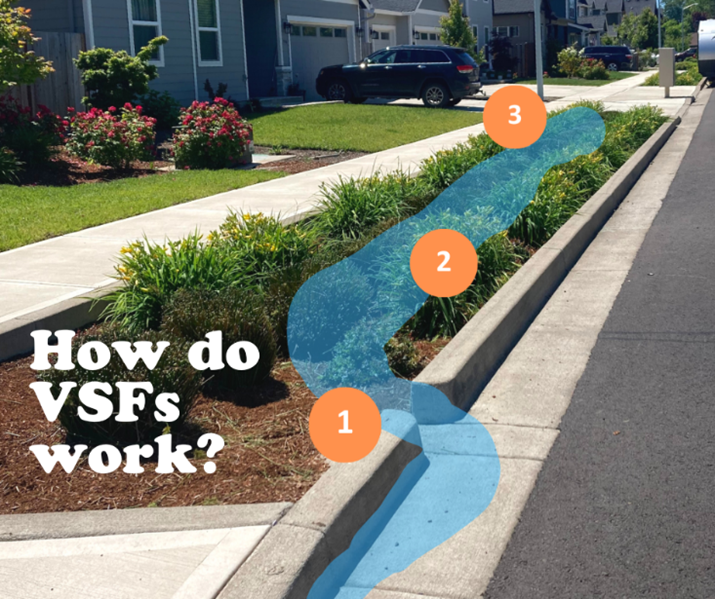
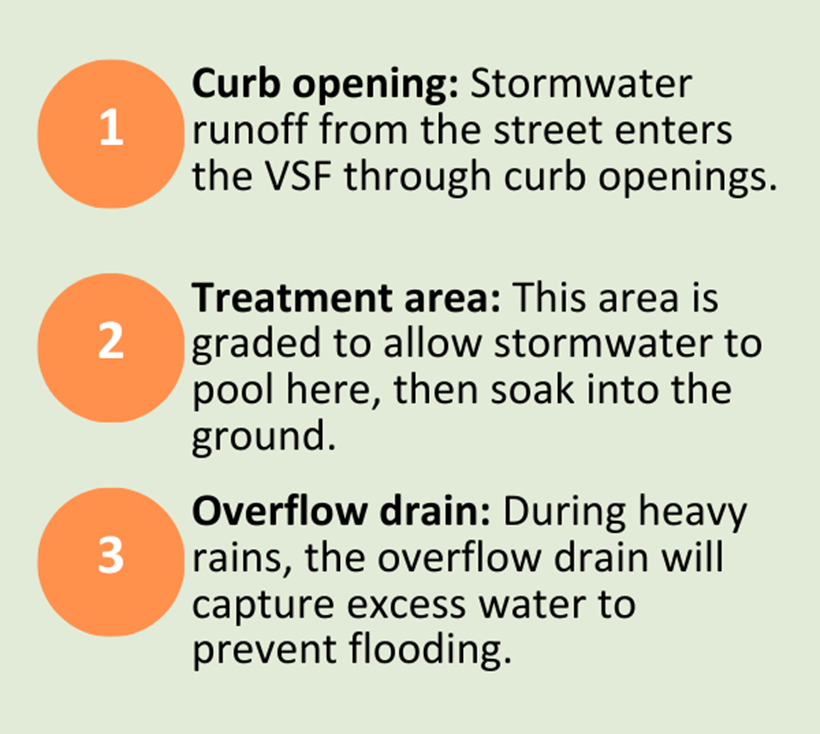
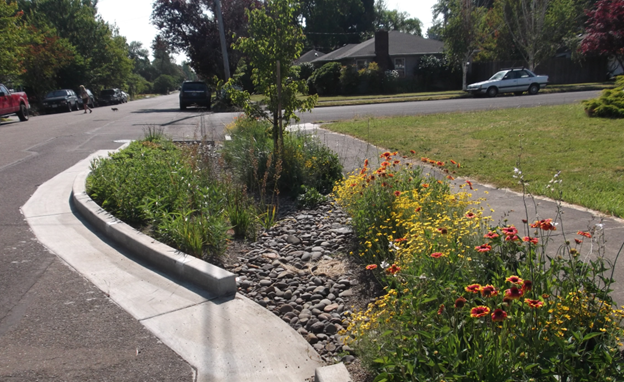
The native plants used in the vegetated stormwater facilities do a bang-up job with our hot and dry summers and long wet winters. We are looking forward to improving more of these facilities throughout Keizer. Be on the lookout for signs like this to see where plants will be exhibiting their super powers next:
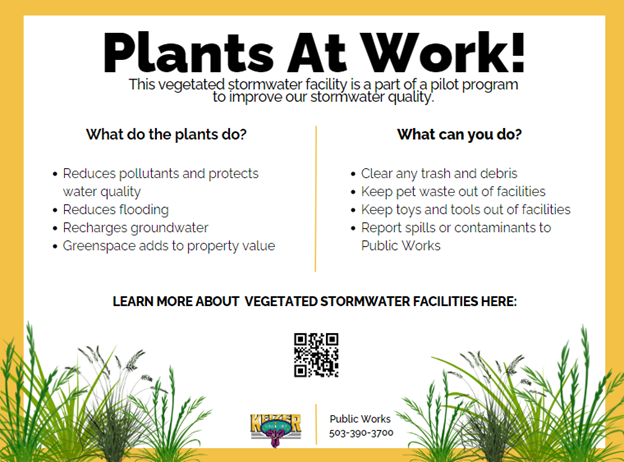
#4 You Are Not a “Karen” if You Report Pollution!
The last thing I want to share is that reporting pollution is the right thing to do. If you see someone dumping paint in a storm drain, changing vehicle oil over a storm drain, or trying to get rid of their pet waste in the storm drain, please report it. Reporting allows us to respond swiftly and appropriately. My kids have called me a “Karen” for offering a pet waste bag to a passerby with their dog who clearly did not have a bag. For the record, I was not a “Karen” in that situation and you will not be either for doing the right thing for our waterway! *I had to look up the definition of a “‘Karen”: a term used as slang for a middle-class woman who is perceived as entitled or demanding beyond the scope of what is normal.
Report Pollution Online
You can report pollution in the City of Keizer online at www.keizer.org/reportpollution.
I look forward to another year of learning and extend well wishes to you and yours.
About the Author
I became a Natural Resource Educator because I have witnessed the power of teaching adults and youth about local natural resources. The connections provided during outdoor conservation education are cross-curricular and build a scaffolding for higher level thinking. It is a blessing to work in a field I am passionate about on a daily basis. I am currently working for the City of Keizer as the Environmental Education and Outreach Coordinator where I have the opportunity to connect the community with their water resources, inspire awareness with the goal of driving action of protecting/improving water resources.

